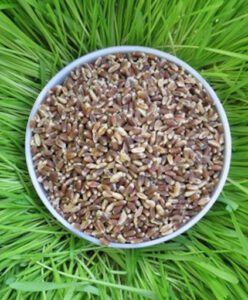
Exports of Ukrainian organic products to the countries of the European Union in 2020 decreased by 23.1% compared to 2019, to 217,210 tonnes. According to the June report of the European Commission, last year Ukraine ranked fourth in the world among suppliers of organic products to this market, its total share of supplies amounted to 7.8%.
Organic cereals (excluding wheat and rice cereals) became the main Ukrainian export crop to the EU organic market, their exports in 2020 sank by 44%, to 82,900 tonnes. Despite the decline, Ukraine remained the main supplier to the European Union, its share amounted to 74.4% of the total supply.
Exports of organic soybeans from Ukraine to the EU in 2020 increased by 67.8% compared to 2019, to 28.7% (21% of the world exports to Europe), organic oilseeds decreased by one third, to 19,300 tonnes (14.1%), oilseed meal – by 9.4%, to 7,400 tonnes (3.2%).
In 2020, Ukraine also exported 5.9% more fresh and dried organic vegetables to the EU than in 2019, 15,500 tonnes, while the export of fresh, chilled and dried organic vegetables decreased by 13.2%, to 5,400 tonnes.
As reported, the Ministry of Economy in April 2021 planned to allocate UAH 50 million for the development of organic production, the amount of state support may increase due to the redistribution of funds from other state programs.
The ministry intends to provide financial support to organic producers in the amount of UAH 5,000 per hectare of cultivated land (but not more than 20 hectares per farm), as well as for one animal (cattle). In addition, farmers will receive refunds of up to 30% of the cost of certification of organic production.
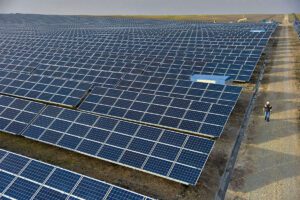
Prime Minister of Ukraine Denys Shmyhal has said that integration with the European Network of Transmission System Operators for Electricity (ENTSO-E) will open up additional prospects for the development of “green energy” in Ukraine.
“Ukraine seeks to adapt the best policies of the European Union, and for this, over the past one and a half years, the government has been actively introducing and developing the gas and electricity market, and is also actively preparing for integration with ENTSO-E in 2023,” the government’s press service said, citing Shmyhal.
The prime minister said that Ukraine is integrating the System Value approach of the World Economic Forum (WEF) into economic planning, in particular, within the framework of this approach, energy efficiency improvements, modernization of distribution networks and an increase in the share of renewable energy sources will become important factors.
“The System Value approach, developed by the WEF, defines a set of solutions that contribute to the sustainable development of economic and power systems. It allows for a better and more complete assessment of the economic, environmental, social and technological results of implementing solutions in the power sector. This tool will also be used for “green” modernization of the economy,” the head of government said.
Shmyhal said that Ukraine has one of the most energy-intensive economies in Europe, and energy efficiency measures will help decarbonize Ukraine’s economy, increase investment in the technology sector and create new jobs.
According to the head of government, integration with the ENTSO-E, which is scheduled for 2023, will open up broad prospects for the development of renewable energy sources in Ukraine, while increasing the stability of the Ukrainian and European power systems.
The prime minister expressed confidence that in the next report of the WEF Energy Transition Index, Ukraine will rank higher thanks to the active development of smart grids, hydrogen economy and power storage systems.
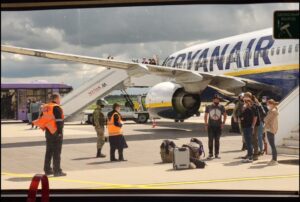
The European Union Aviation Safety Agency (EASA) has recommended that EU air carriers and non-EU airlines avoid Belarusian airspace, Western media outlets reported on Wednesday, citing the EASA.
Non-EU airlines authorized by the EASA when conducting operations to, from, and within the EU are advised to avoid operating in Belarusian airspace, it said.
The agency cited safety reasons following the May 23 Ryanair flight incident, which called into question the ability of the Belarusian authorities to provide safe air navigation services.
A Ryanair flight from Athens to Vilnius was forced to land at the Minsk airport while passing through Belarus’s airspace on May 23. It was reported that the plane landed after the Belarusian security services were warned of a bomb threat. Belarusian President Alexander Lukashenko ordered that a MiG-29 fighter jet be scrambled to shadow the passenger plane, which was carrying Roman Pratasevich, editor of the Telegram channel Belarus Golovnogo Mozga (Belarus of the Brain) and former editor of the Telegram channel Nexta, both designated as extremist in Belarus, and his girlfriend Sofia Sapega, a Russian citizen and student of the European Humanities University based in Vilnius. The Belarusian authorities have detained both of them.
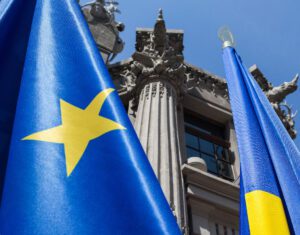
Ukraine expects the European Union to revise its Neighborhood Policy, and that this revision will affect all the countries of Eastern Europe, said Olha Stefanyshyna, Deputy Prime Minister of Ukraine for European and Euro-Atlantic Integration.
“We expect that in 2022 the European Union will start revising the Neighborhood Policy, and this revision will affect all Eastern European countries; that a specific new format of cooperation will be developed for Georgia, Ukraine and Moldova, countries aspiring to membership [in the EU]. And we expect that by 2027, when Lithuania assumes the presidency of the EU Council, it will be possible to come up with specific political decisions,” she said during an online discussion of Kyiv Forum, founded by the Arseniy Yatsenyuk Foundation entitled “Discover Ukraine.”
Stefanyshyna noted that Ukraine positively assesses the current situation of relations with the EU. “At the same time, we believe that the time has come to start revising the Neighborhood Policy. We hope that this work will begin in 2022. And I know that many in European capitals are ready to join this work, and Ukraine will be able to get the prospect of membership [in EU],” she stressed.
At the same time, she noted that “there is really fatigue from expansion, and we feel it in our capitals.”

Head of the President’s Office of Ukraine, at a meeting with the ambassadors of the G7 countries and the European Union, informed the diplomats about the progress of the corporate governance reform of state-owned companies, the press service of the head of state said on Thursday evening.
“The Head of the President’s Office invited the ambassadors and their countries to join the preparation of the draft law on improving corporate governance of legal entities, the shareholder of which is the state, which will ensure the implementation of modern international standards in Ukrainian legislation,” the message says.
In turn, Deputy Head of the President’s Office Yulia Svyrydenko noted that the goal is to clearly delineate the functions of the state as a shareholder and to prescribe transparent criteria for evaluating supervisory boards.
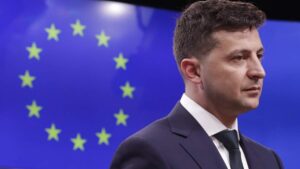
President of Ukraine Volodymyr Zelensky offered French President Emmanuel Macron to sign a declaration of support for Ukraine’s accession to the European Union.
“We have made a declaration that we conclude with partner countries, member states of the European Union, in which this or that country signs a declaration with us, indicating its support of Ukraine in striving to be a member of the European Union. Frankly speaking, several countries have already signed this declaration. There are countries that are now reviewing this declaration. I told the details of this declaration. I suggested that France also support Ukraine. I believe that President Macron will get acquainted with this declaration and give his answer,” Zelensky said at a briefing on the results talks with French President Macron in Paris on Friday.
Zelensky also said the Declaration on the European Perspective of Ukraine is an initiative of our state, which “does not want to wait until everything is done for us.”
“We are very proactive in Ukraine. We do not wait for everything to be done for us. We ourselves are taking concrete steps,” Zelensky said.
As reported, on March 18, a meeting of the presidents of Ukraine and Lithuania took place, during which they signed a Declaration on the European perspective of Ukraine.
EMMANUEL MACRON, EUROPEAN UNION, FRANCE, PRESIDENT, PRESIDENT ZELENSKY